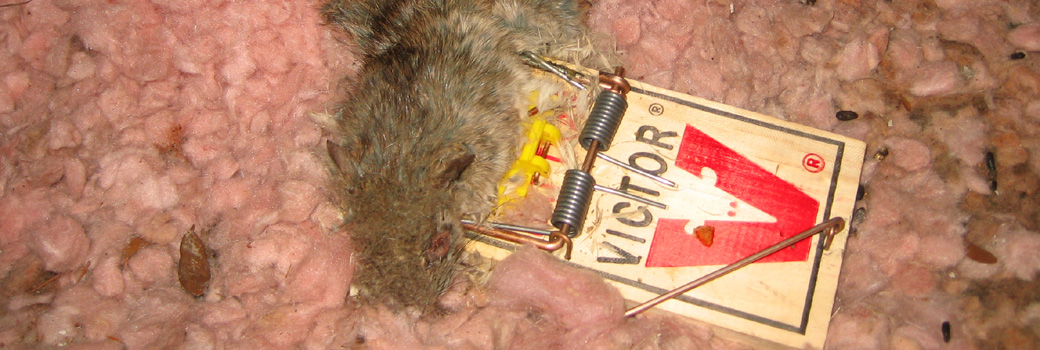- Miami Educational Article of the Month - Diseases rats carry
Diseases rats carry
Diseases rats carry
Because of their feeding habits, and overall nature Miami rats are vessels of disease and sickness. They often
act as a host to other health hazards such as ringworm, skin mites, tapeworms, ticks and fleas that can be
transmitted to humans and other animals. They are able to infiltrate all areas of your Florida home, defecating,
urinating and tracking filth wherever they go. Rats can transmit these diseases any number of ways. Disease
can be spread through physical contact such as scratches or bites. It can occur by fecal contamination of foodstuffs
and pollution of water supply, disease can be tracked in on feet and claws, or even spread by fleas and ticks that are
feeding on the Miami rodent. Hantavirus Pulmonary Syndrome (HPS) is a severe, often fatal, respiratory infection.

In the same family of disease is variety of Hemorrhagic fevers. It is treated through antiviral drugs and often dialysis is needed.
Hemorrhagic fevers can be contracted by breathing in the bacteria contained in dust comprised of Florida rat droppings and crystallized urine.
Another less common way, is through a rat bite. Even healthy individuals are at risk for these types of infections if exposed to areas
with heavy concentrations of rat filth. Rats moving about food supplies and food preparation areas can leave behind all types of infectious
matter. A Miami rat’s saliva, fecal matter and urine are known cause several different types of food poisoning such as salmonella and Weil’s disease.
Rat bite fever is a nasty illness caused by Streptobacillosis, and causes severe flu like symptoms and red splotchy bumps. It is contracted through breathing rat waste, as well as through salvia.
As the name implies, it is also transmitted through bites. This disease is treatable with penicillin and only fatal In 20% of untreated cases. Murine typhus is a common illness that is spread by
fleas excreting it into the wound of a host. This disease can then be spread by both the rat and the flea. It is also treated with a regimen of antibiotics. Prompt diagnosis and treatment is
necessary to prevent renal damage, complication with breathing or the lungs, or nervous system problems. In a small parentage of patients, especially the elderly, death can occur. Fleas are sources
for several varieties of plague. Bubonic plague is the most common and well known. It infects your immune system.
If left untreated, it can move into the blood stream and become septicemic plague. Septicemic plague is When the bacteria go directly to the
bloodstream and multiply. Pneumonic plague forms in the lungs; It is the most lethal form of the plague. When someone with pneumonic plague
coughs, the spray from their lungs contains germs. Other people who breathe that air can contract this highly contagious form of plague. Pneumonic
plague is the only form of plague transmitted from person to person. If left untreated, both bubonic and pneumonic plague can become septicemic plague.
To learn more about our services, visit the Miami wildlife removal home page.

